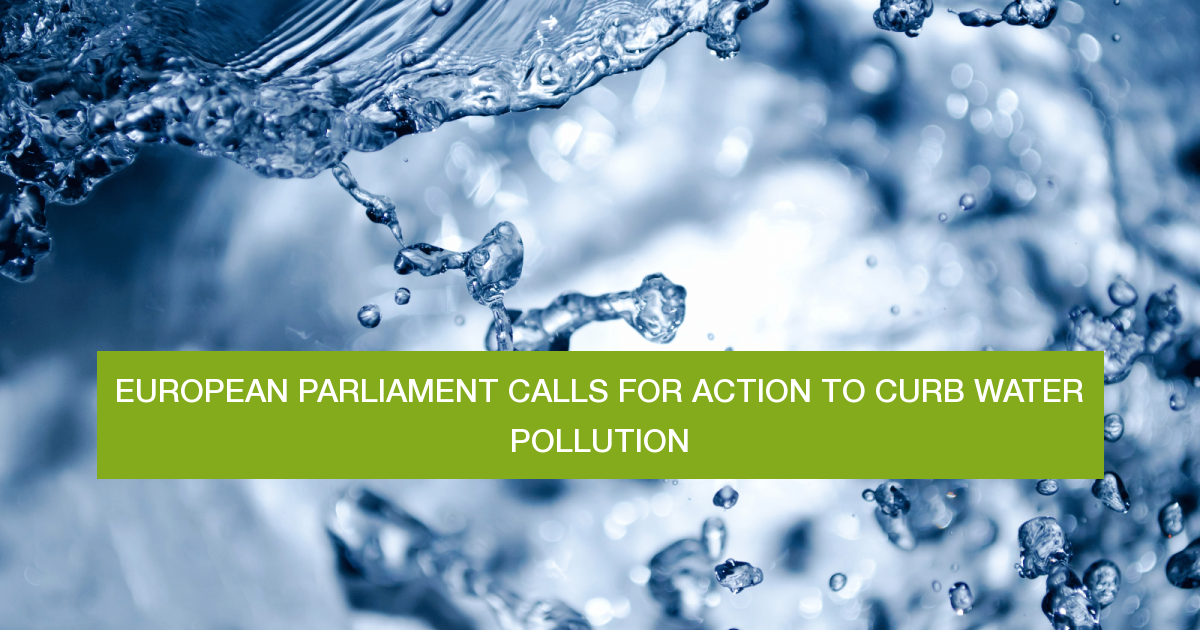The European Parliament has sent a clear signal on the need to curb water pollution by voting in support of measures that will improve monitoring and help guide action.
MEPs on the Environment Committee supported new substances including a group of 24 PFAS, several pesticides and, for the first time, pharmaceuticals to be added to the lists of EU pollutants that require Member States to monitor and control the presence of these substances in surface and groundwater.
Stepping up ambition
We welcome the ENVI Committee’s call to act on water pollution which has strengthened the Commission’s proposal guiding water pollution monitoring in the EU. This includes: a call to speed up the review of the lists of EU pollutants to reflect scientific developments; reject decreasing monitoring efforts for substances of emerging concern; reject the removal of the deadline to phase out priority hazardous substances, like mercury; and a proposal to introduce an Extended Producer Responsibility scheme which would see industry contributing to the cost of monitoring the substances they put on the market and that ultimately end up in our waters.
Sara Johansson, Senior Policy Officer for Water Pollution Prevention at the European Environmental Bureau said: “The chemical status of Europe’s waters is far from good, but the real scale of water pollution is underestimated. MEPs in the ENVI committee today sent a strong message that monitoring, abatement and reporting efforts must be stepped up. We are now waiting for the Council to progress on their opinion.”
Manon Rouby, Policy Officer/ Legal Adviser at PAN Europe said: “Our groundwater is very vulnerable and slowly but steadily polluted by pesticides and other harmful chemicals. So, we welcome the recognition by the ENVI Committee of the European Parliament that the precautionary principle needs to be implemented here. We also welcome the stricter requirements for the widely used herbicide glyphosate.”
Lucille Labayle, Water Quality and Health Policy Officer, Surfrider Foundation Europe said: “Today’s vote shows a welcome and hopeful commitment to address water chemical pollution. The ENVI Committee has taken a stance in favour of healthy waters for all, strengthening the Commission’s proposal while also introducing key measures to protect our waters like the EPR scheme. We are now yet to see if these efforts carry through in the plenary vote and the Council’s opinion.”
A precautionary approach for vulnerable ecosystems
We welcome the Committee's recognition of the vulnerability of groundwater ecosystems, which require a precautionary approach, the setting of stricter thresholds for pollutants, and the need to survey not only pollutants but also other stressors, such as temperature. We also welcome the recognition of the need to prioritise pollution abatement at the source and the rejection of weakening thresholds for non-drinking water sources. Unfortunately, MEPs missed the opportunity to fully enhance the regulation of chemical mixtures in water bodies by not requiring thresholds for substance groups with similar modes of action to be set. Following today’s vote in the ENVI Committee, all MEPs will have their say on the update of priority substances and groundwater pollutants in a plenary vote in the European Parliament. The EEB, PAN Europe, Surfrider and HCWH call on all members of the Parliament to support the strong position taken by the ENVI committee.
Contacts:
- PAN Europe: Manon Rouby, Policy Officer/ Legal Adviser, +336 43 24 33 79, manon [at] pan-europe.info
- European Environmental Bureau: Sara Johansson, Senior Policy Officer, +32 2 790 24 79, sara.johansson [at] eeb.org
- Surfrider: Lucille LABAYLE, Water Quality and Health Policy Officer, llabayle [at] surfrider.eu
Notes to editors
The European Commission published its proposal for updated priority substances and groundwater pollutants at the end of October last year, which adds new pollutants to the list of EU substances that guide monitoring and efforts to curb water pollution.
No meetings on the file were arranged during the Swedish presidency until 12 June meaning the Council is lagging behind the European Parliament in reaching an opinion.

